Assessing the impact of the revised Law on Corporate Income Tax on businesses, National Assembly deputies said that it is necessary to consider applying appropriate corporate income tax to create a more favorable environment for businesses to develop and recover after the Covid-19 pandemic.
Morning of November 28, continue the program At the 8th session, the National Assembly discussed the project in the hall. Law on Corporate Income Tax (amended).
Tax Facilitation for Small and Medium Enterprises
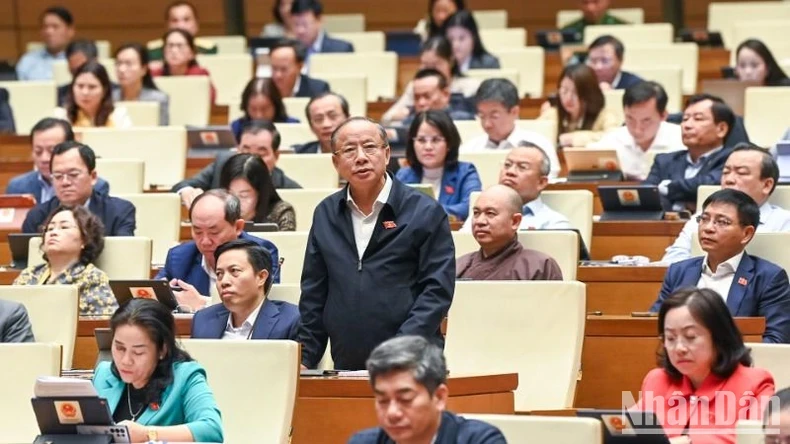
Speaking at the discussion session, delegate Nguyen Van Than (Thai Binh) highly appreciated the National Assembly's consideration and discussion of the Law on Corporate Income Tax (amended) at a time when Vietnam's economy is deeply integrating with the world economy.
The delegate said that this law has a great impact on small and medium enterprises. Currently, small and medium enterprises account for about 97% of nearly 1 million enterprises. Regarding tax rates, the bill stipulates that a tax rate of 15% will be applied to enterprises with total annual revenue of no more than 3 billion VND.
The delegate said that the regulation has not resolved practical difficulties, and suggested that appropriate tax regulations should be made, not a fixed tax of 15%. "If this can be done, businesses will be very excited to participate in production and business," the delegate stated.
Commenting on the corporate income tax rate, delegate Nguyen Thi Le (Ho Chi Minh City) analyzed that Article 10 of the draft law still maintains the common corporate tax rate of 20%, which is still high compared to other countries in the ASEAN region.
According to the delegate, to encourage and create a favorable environment for the development of enterprises in general, it is necessary to consider reducing the general corporate income tax rate to about 19%, creating a more favorable environment for enterprises to develop and recover in the post-Covid-19 period.
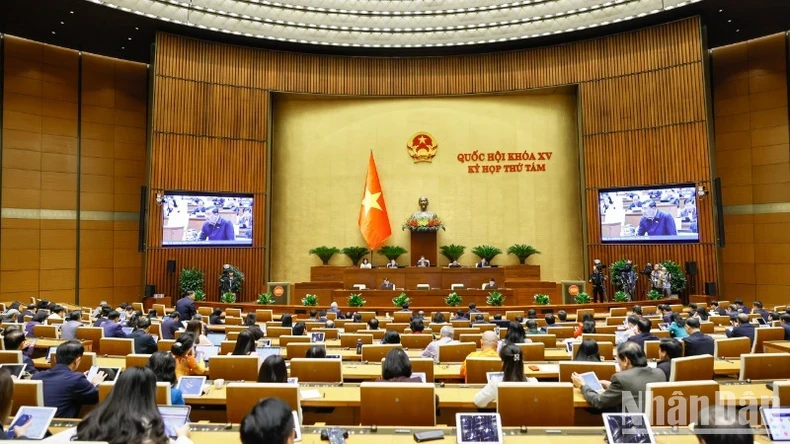
Regarding non-deductible expenses when determining taxable income in Clause 2, Article 9 of the draft law, delegates said that if additional provisions like the draft law were added, it could cause difficulties and frustration for businesses, because it is not uncommon to see cases where businesses spend a lot of money on investment projects, but due to objective reasons or force majeure events, the projects do not generate profits as planned previously.
This is very unreasonable and negatively affects the investment motivation of enterprises when they have to bear both the risk of no revenue and the risk of not being able to deduct taxes when investing in projects. Therefore, delegates proposed to add regulations on cases where expenses are deductible when determining taxable income of enterprises, helping enterprises reduce risks when investing in projects...
Corporate income tax should be reduced for public service units.
Speaking at the meeting, delegate Duong Khac Mai (Dak Nong) affirmed that the draft Law on Corporate Income Tax (amended) was introduced in a timely manner to adjust issues arising in practice to help businesses and state management work become better. In recent times, autonomy has supported many agencies and units to operate better and helped reduce the state budget.
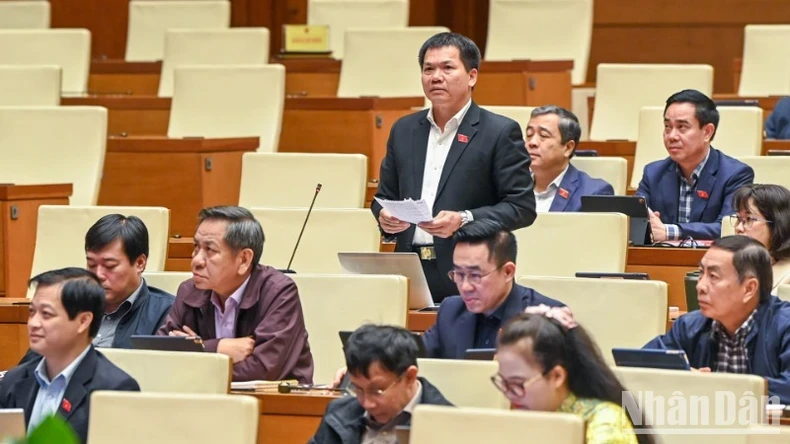
However, at present, many localities still face difficulties in autonomy in some areas such as health, education... On the other hand, many agencies still have to carry out political tasks assigned by the state but face difficulties in terms of resources.
Faced with the above reality, to support agencies, units, and localities in performing their functions of ensuring political tasks and other goals, delegate Duong Khac Mai proposed that the drafting agency study reducing corporate income tax for public service units to create conditions for units to have resources to invest in infrastructure and technology to operate better.
Sharing the same view, delegate Nguyen Thi Thu Dung (Thai Binh) pointed out that, according to the draft law, the income of public service units providing public services is also subject to tax exemption. However, it is proposed to exempt corporate income tax for units that are autonomous in both investment and regular expenditures.
The delegate analyzed that currently, the autonomy of public service units still has many obstacles and shortcomings due to the incomplete and inconsistent legal corridor, leading to many difficulties for the majority of autonomous units.
Reduced revenue leads to limited benefits, reduced income of civil servants and workers, which is also one of the main reasons leading to the situation of civil servants quitting their jobs and not being able to retain high-quality human resources.
From the above analysis, delegates proposed that it is necessary to exempt corporate income tax for units that are autonomous in both investment and regular expenditures.
Continue to reduce taxes to facilitate business development
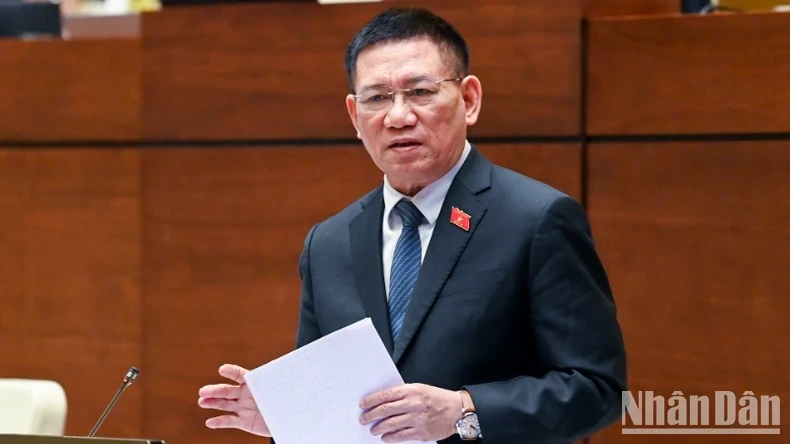
On behalf of the drafting agency, Deputy Prime Minister and Minister of Finance Ho Duc Phoc thanked the contributions and accepted the opinions of National Assembly deputies at the discussion session, and affirmed that the goal of amending the law is to ensure correctness, appropriateness, fairness, reasonableness, and promote development.
Deputy Prime Minister Ho Duc Phoc affirmed that tax is still the main source of revenue for the state budget (currently experiencing a relatively large deficit), while in the coming time, important infrastructure projects will be built, so the budget deficit and public debt will increase.
The Deputy Prime Minister also said that the current world trend is to tighten fiscal policy, that is, increase tax rates to ensure the stability of public finances.
However, Vietnam has just experienced a pandemic, so it is still reducing taxes to create conditions for business development. Compared to many countries in the region, Vietnam's corporate income tax is also lower.
Regarding corporate income tax, the Deputy Prime Minister affirmed that all corporate income is taxable income. Foreign enterprises that do not have a permanent address in Vietnam but have activities in Vietnam and generate income must pay corporate income tax. In the past, we have collected taxes from e-commerce platforms, online shopping, etc.
Regarding taxes on public service units and press agencies, the Deputy Prime Minister said that there are three types of public service units: fully state-funded, regularly autonomous, and fully autonomous.
Regarding the comprehensive autonomy model, the Deputy Prime Minister said that if there is revenue, taxes need to be paid. If public services are not calculated sufficiently, taxes do not need to be paid, and public services in particularly difficult areas are subject to tax reduction.
For press agencies, the Deputy Prime Minister proposed reducing taxes to 10% for printed newspapers and other types of newspapers, helping them press agency carry out political tasks.
Source


![[Photo] More than 17,000 candidates participate in the 2025 SPT Competency Assessment Test of Hanoi National University of Education](https://vphoto.vietnam.vn/thumb/1200x675/vietnam/resource/IMAGE/2025/5/17/e538d9a1636c407cbb211b314e6303fd)
![[Photo] Prime Minister Pham Minh Chinh chairs meeting on science and technology development](https://vphoto.vietnam.vn/thumb/1200x675/vietnam/resource/IMAGE/2025/5/17/ae80dd74c384439789b12013c738a045)



![[Photo] Readers line up to visit the photo exhibition and receive a special publication commemorating the 135th birthday of President Ho Chi Minh at Nhan Dan Newspaper](https://vphoto.vietnam.vn/thumb/1200x675/vietnam/resource/IMAGE/2025/5/17/85b3197fc6bd43e6a9ee4db15101005b)





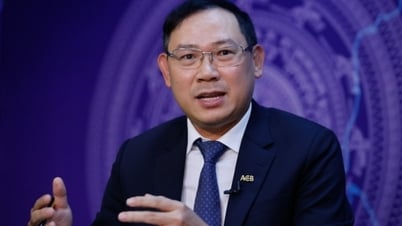





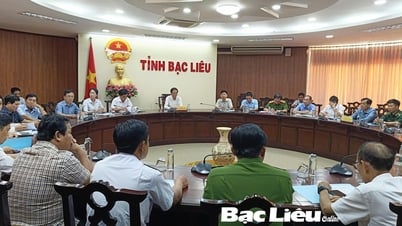
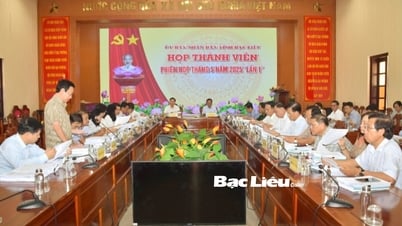
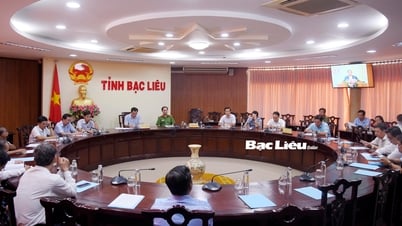
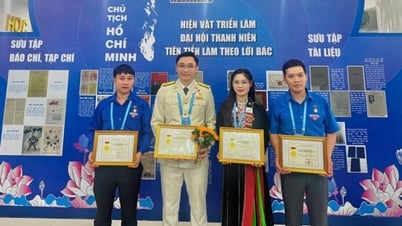


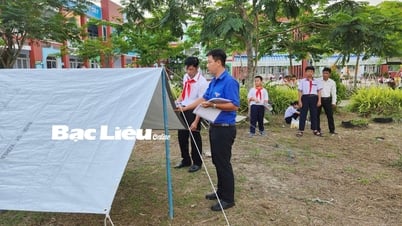





![[Infographic] Numbers about the 2025 High School Graduation Exam in Dong Thap Province](https://vphoto.vietnam.vn/thumb/402x226/vietnam/resource/IMAGE/2025/5/17/c6e481df97c94ff28d740cc2f26ebbdc)
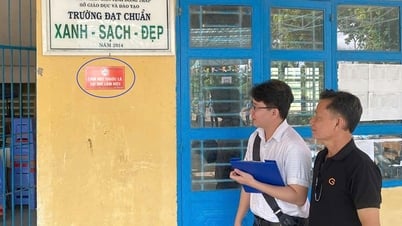


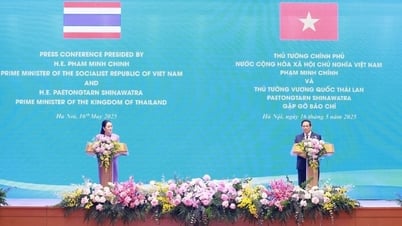
![[Photo] Nearly 3,000 students moved by stories about soldiers](https://vphoto.vietnam.vn/thumb/1200x675/vietnam/resource/IMAGE/2025/5/17/21da57c8241e42438b423eaa37215e0e)






















































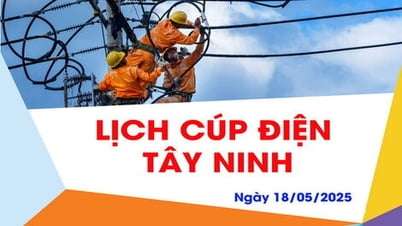













Comment (0)